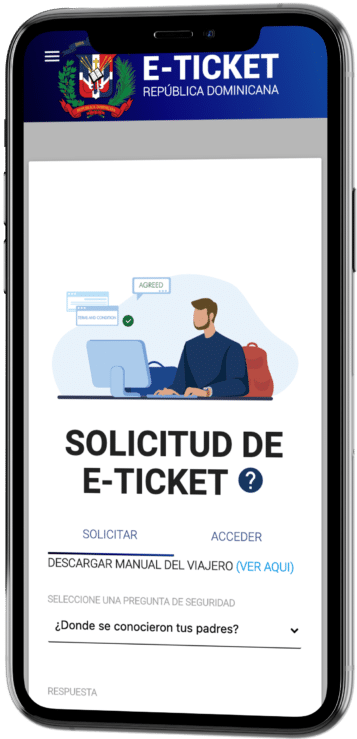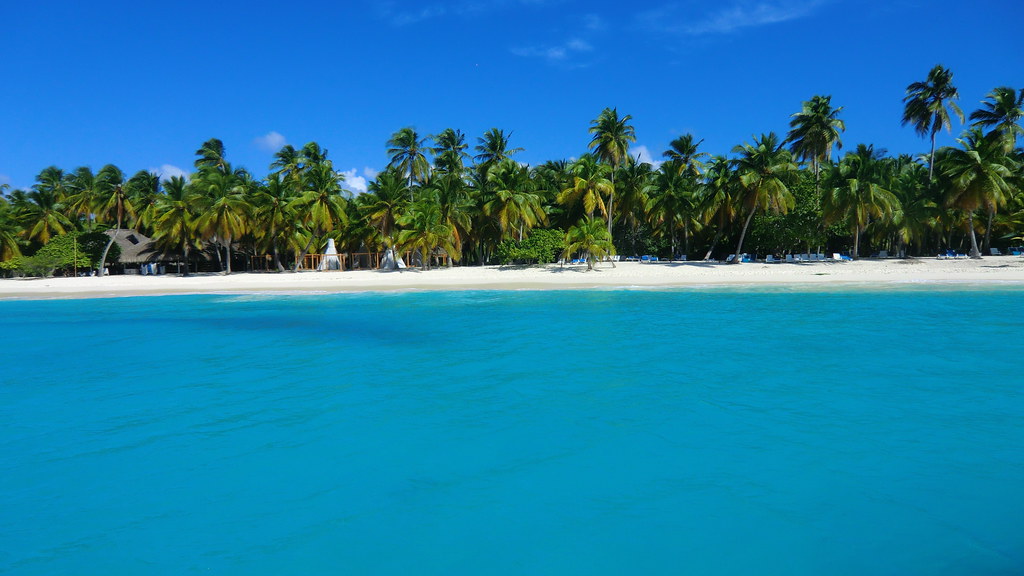Electronic ticket for entry and exit to the Dominican Republic 2024 Now you can record your entry and exit data digitally It …
A Guide to Phone Area Codes in the Dominican Republic

When traveling to a foreign country, one of the important things to keep in mind is the local phone area code. In the Dominican Republic, there are several area codes that you should be aware of, depending on where you are calling from or to. Here’s a guide to phone area codes in the Dominican Republic:
- The country code for the Dominican Republic is +1.
- Santo Domingo, the capital city, has the area code 809, 829, and 849.
- Other major cities and provinces have their own area codes, such as:
- La Vega: 809
- Santiago: 809, 829, and 849
- Puerto Plata: 809
- San Pedro de Macoris: 809
- Higuey: 809
- If you are making an international call to the Dominican Republic, you need to dial +1 followed by the appropriate area code and phone number.
It’s important to note that some phone companies in the Dominican Republic may have different area codes or may require additional digits to be dialed, so it’s always best to check with your service provider before making a call.
By being familiar with phone area codes in the Dominican Republic, you can easily make local and international calls without any hassle.
What is the Telephone Area Code for the Dominican Republic?
The country code is +1. There are three area codes: 809, 829, and 849.
Frequently Asked Questions
The Dominican Republic has eight international airports, five cruise destinations and a variety of marinas for boats and yachts of all sizes, as well as smaller airports for private planes. Because this is such a large and diverse island, it is important to choose your arrival airport to coincide with the final destination of your stay.
For additional information, please review our Recommended Links, or get in touch with one of our overseas offices.
Most visitors arriving to the Dominican Republic–including those from the United States, Canada, United Kingdom, the European Union, Russia, Ukraine, Kazakhstan, Mexico, many South American countries, Central America, Japan, Israel, etc. do not need a visa to enter the country. All foreign citizens who enter the Dominican Republic, exclusively for tourism purposes, must have a valid passport during their stay and departure from the country. This exceptional measure is valid until April 30, 2023.
E-TICKET
All foreign and Dominican passengers entering or departing the Dominican Republic on commercial flights must complete the free electronic entry and exit form at: https://eticket.migracion.gob.do
It is no longer required to fill it out 72 hours prior to the trip. It can be filled out as soon as you have your flight information, even months in advance. However, it must be filled out before arriving at the airline counter at the airport, as it is required to present it to the airline. To avoid delays at the airport, it is advised to complete the form before the trip.
If your specific home city is not shown in the form, you can choose the nearest large city in your state or province. If you are staying at a vacation rental, please ask the host to provide the complete address, including province, municipality and sector.
If you are traveling as a family, you must fill out the form with the data of all the family members who will be traveling, however, it is only necessary that a single user be created in the system and that this user fill in the data of all the members of the family that belong to that trip, up to 6 members additional to the one filling out the form (7 persons in total per form). It is not necessary for each traveler in the same family to fill out an individual form. If more than 7 people are traveling, you must fill out an additional form for the rest. Children do not fill out the Customs section, only adults. A single QR code will be generated for the family.
You can print or make a screenshot of the arrival and departure confirmation QR codes. If you need to make any changes to the E-TICKET, you can consult it with the application code that was issued when you started filling out the form and make changes.
Passengers arriving on private flights, non-commercial vessels, ferries, cruise ships, etc., do not need to fill out the E-TICKET. The physical Customs Declaration and International Embarkation/Disembarkation forms will be accepted for the aforementioned passengers.
ENTRY REQUIREMENTS
As of April 23, 2022, all passengers and crew members do not need to present a COVID-19 Vaccination Card, PCR, or antigen test to enter the Dominican Republic or to enter tourist centers, any establishments or to receive services such as excursions. Random COVID-19 testing for passengers and crew upon arrival in the Dominican Republic will no longer be performed. However, when required, random testing operations may be performed. Passengers who present their Vaccination Card will be exempted from random testing.
VISAS
The Dominican Republic issues tourist, business, work, student, and residency visas. Tourist visas can be issued for one or several entries. Any person, regardless of their nationality, can visit Dominican Republic if they are a legal resident of or, if they have one of the following valid visas in their passport: United States, Canada, United Kingdom or Schengen. Travelers who do not have a passport or visa from countries listed above or from other authorized countries will need to apply for a visa. To issue a visa the passport needs to have a validity of at least six (6) months.
The Dominican Ministry of Foreign Affairs is the institution that issues visas. They have a chat line available in English and Spanish, where you may contact them for specific visa questions or for other inquiries: https://mirex.gob.do/en/
Click HERE to check if your country requires a tourist visa.
See Dominican consulates abroad here. Please make sure to always check for updated requirements before traveling.
WHO ARE EXEMPT FROM NEEDING A VISA?
- Residents in the Dominican Republic and Dominican nationals.
- Diplomatic and consular personnel with missions assigned in the country, as long as they remain on duty.
- Passengers using non-commercial private aviation as long as the aircraft meets the following requirements: the trip must be for sport, leisure, tourism and business purposes, and the aircraft must not weigh more than thirty thousand (30,000) pounds and have a maximum capacity of 12 passengers.
For more information, please visit GETTING HERE.
If staying beyond 30 days, expect an additional fee upon departure–determined on a sliding scale according to the total length of your stay. See the applicable fees and upload required documents here, to be paid online before departure or at the airport’s immigration section–after check-in and past security–upon departure.
The departure tax is US$20. It is already included in your airline ticket fare.
In the Dominican Republic, you can purchase and consume alcoholic beverages from the age of 18. This means that bars will not admit anyone under 18, even when accompanied by parents or an adult.
The Dominican Republic is surrounded by over 1,600 km (1,000 miles) of coastline on its north, east, and southern borders, and the climate is tropical. Noontime temperatures range from 27°C to 32°C (80°F to 90°F ), and can fall to 18°C and 23°C (64°F to 73°F) during the winter. Because we are in the tropics, it is hard to say if and when there is a rainy season. Rains are usually short lasting.
The Atlantic hurricane season begins on June 1 and extends to November 30. In the Dominican Republic, these are the summer and early fall seasons when the weather is sunny and humid, with some cloudiness and occasional rain showers in the late afternoon or at night. Historically, most hurricanes have occurred in the month of September. But chances of one hitting are slim, and if it does occur, resort staff is trained in handling these situations, and resort buildings today are equipped to withstand hurricane force. You should also take note that the Dominican Republic is a large country–this means that while one coast may be affected, another may be completely unscathed by a storm.
Located in the Caribbean, the Dominican Republic has a surface area of over 48,442 km² (18,704 square miles), which means that Puerto Rico could fit into the country five times, and Jamaica four times. Due to its size and the variety of its terrain, the Dominican Republic offers visitors an incredible diversity in landscapes, including beaches, mountains, pre-historic caves, deserts, lakes, islands, rivers, and numerous waterfalls. That’s why we say the Dominican Republic “Has it all.”
No, it is not safe to drink the tap water in the DR, as it is not purified. Always drink bottled water, available in abundance at your resort or in the neighborhood stores and supermarkets.
This is fine for convenience only–to pay for your airport taxi and your first transactions. Otherwise, if you must exchange money, head to one of the main banks in the Dominican Republic–they use the Central Bank’s daily rate as the benchmark for exchange transactions, so the difference in the exchange rate between banks is negligible. Banks close at 5pm on weekdays, but most branches inside shopping malls remain open until around 7pm-8pm. ATM machines are available at supermarkets and shopping malls until later hours. For security reasons, it is best to use the exchange services or withdraw from ATMs as you go along.
The ITBIS (Impuesto sobre Transferencia de Bienes Industrializados y Servicios or the value-added tax for transferring industrial goods and services) is 18% and is applied to most purchases. In restaurants, bars, and hotels, a further 10% is automatically added as a service charge.
Yes, the Dominican Republic imposes several closed fishing seasons. By law, it is prohibited for anyone to fish, consume, or possess the following marine species during these designated time periods:
Lobster: March 1- June 30
Crab: March 1 – June 30
Conch: July 1- Oct 31
This also means that these species should not be available for sale nor served at food establishments, markets, or other commercial locations during closed fishing months.
Fishing for parrotfish and sharks is strictly prohibited at all times, year round. Violating these laws will result in hefty fines and imprisonment.
Electronic ticket for entry and exit to the Dominican Republic 2024 Now you can record your entry and exit data digitally It …
Exploring Paradise: The Top 5 Saona Island Excursions You Must Experience Saona Island, nestled in the heart of the Caribbean, is a …





